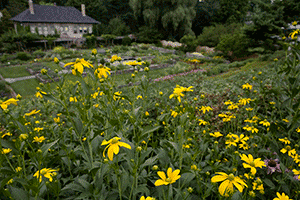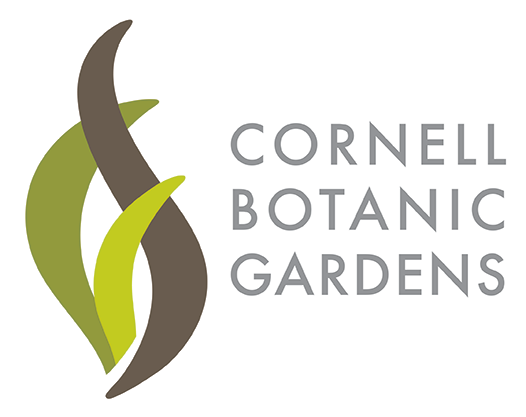About Cornell Botanic Gardens

About Cornell Botanic Gardens
Cornell Botanic Gardens is one of the units that truly distinguish Cornell among its peers. No other Ivy League or major academic research university can boast the resources of a mature botanical garden along with an arboretum and a diverse network of nature preserves.
This cherished place of beauty and repose is also a living museum and a leader in environmental conservation, offering a wealth of opportunities for educational and research partnerships.
Mission
Inspiring people – through cultivation, conservation, and education – to
understand, appreciate, and nurture plants and the cultures they
sustain.
Cultivation - We cultivate diverse, educational, and beautiful gardens.
These gardens are found within a 25 acre botanic garden and a 150 acre arboretum. Within the botanic garden are 12 specialty gardens of herbs, flowers, heritage vegetables, rhododendrons, groundcovers, and unique displays of perennials, grasses, and plants of winter interest. Our arboretum is a vast display space of diverse trees and shrubs along with specialty gardens. Key collections include nut trees, crabapples, oaks, maples, and trees suited to urban environments.
Preservation - We help to preserve plant diversity, which is critical to the well-being of life on earth.
While preservation occurs within our cultivated collections the majority of our preservation work occurs within the approximately 4000 acres of natural areas located on the Cornell University campus and within Tompkins County. Our natural areas include bogs, fens, gorges, glens, meadows, woodlands an other biologically diverse ecosystems all of which are managed for preservation, research and teaching.
Education - We provide meaningful learning opportunities for people to connect with plants.
Our education programs offer a wide variety of educational opportunities for people of all ages. Key programs include academic offerings such a graduate fellowship in public garden leadership; coursework in public garden management and plants and human well-being and a lecture series; a summer internship program for Cornell students; and faculty support for courses and research. Community offerings include hands-on learning programs for area youth, classes and workshops for lifelong learners, guided tours, and a robust volunteer program.
Gradate Program Directors
Donald Rakow, Ph.D., Associate Professor of Horticulture
Donald A. Rakow is the PGL program director and may serve as the fellows' major professor for their graduate committees. Don is also the fellows' primary mentor and assists fellows in selecting other committee members and coursework as well as in developing their graduate project. Don was the director of Cornell Botanic Gardens from 1996-2013 and was the associate director starting in 1993. He co-edited “Public Garden Management” the first textbook pertaining to the field. Prior to coming to Cornell Botanic Gardens, Don worked as a Cornell Cooperative Extension Agent for Broome County and then as a faculty member of the Department of Horticulture. He is still an associate professor in the Department. Don earned his Ph.D. and M.P.S. in horticulture from Cornell University and his B.A. in English from SUNY Albany. Don grew up on Long Island.
Sonja M. Skelly, Ph.D., Director of Education at Cornell Botanic Gardens
Ph. 607-255-2406; e-mail: [email protected]
Sonja M. Skelly is the MPS program coordinator and serves as the primary contact for interested, prospective, and current fellows. Sonja also serves as a committee member and mentor for current fellows in selecting their coursework, developing their project, and working with Cornell Botanic Gardens. Sonja joined Cornell Botanic Gardens in May 2002. Prior to that she worked as the consumer horticulture specialist and master gardener coordinator for the Mississippi State University Extension Service. She earned her Ph.D. in horticulture from the University of Florida and her M.S. in horticulture and B.A. in anthropology from Texas A&M University. Sonja grew up in Seabrook, Texas.








